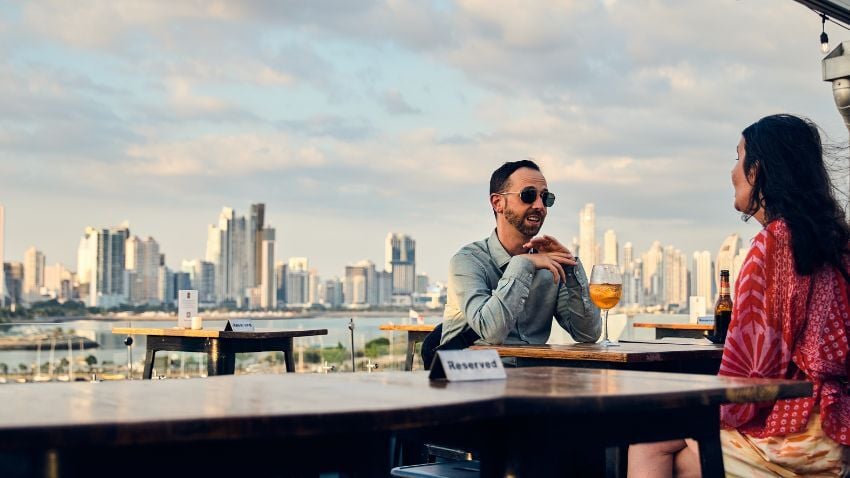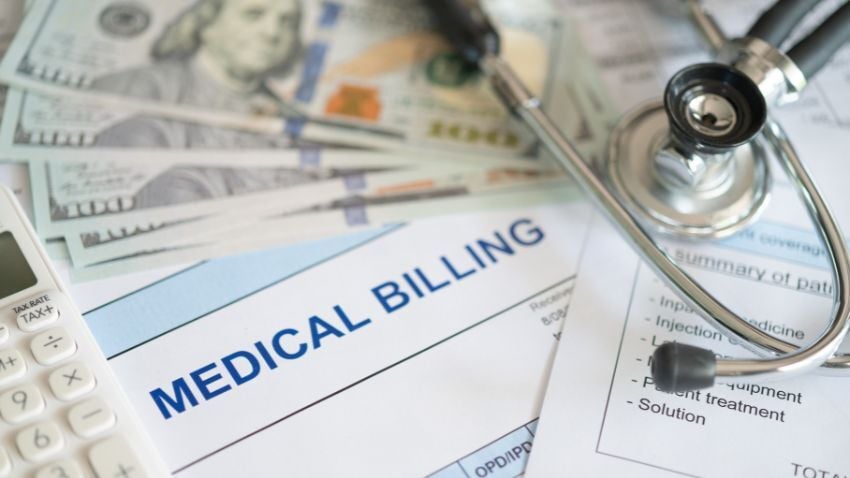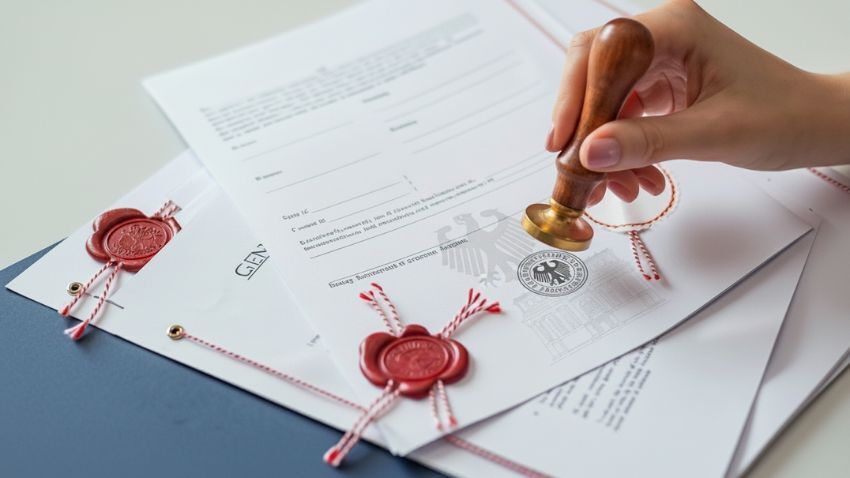Everything You Need To Know About Moving To Panama
One of the things people are most curious about is how I decided to live outside my home country, Canada. I am not surprised by this question. Most...

9 min read
One of the things people are most curious about is how I decided to live outside my home country, Canada. I am not surprised by this question. Most Westerners have been unquestioningly led to believe that Western countries are the best, most civilized, freest and richest countries to live in. As an expat who left Canada, lived in 9 different countries, and travelled around the world 400 times, I can frankly say that this is the most brutal lie ever told to you.
I can understand the vulgar propaganda coming from government officials and politicians who feed on your wealth and creativity — that’s their business model. But what’s your excuse for not building a Plan-B? When you’re paying half your income in taxes, suffocated by regulations that crush productivity, staring down the threat of capital controls, watching the cost of living climb, settling for failing public services, enduring pressure of progressive ideology and endless political conflict, and having almost no say in how your children are educated — your freedom to live your own life is being chipped away, day by day.
Instead of accepting this madness, you can choose to opt out. I decided to move to Panama with my family to enjoy all the benefits and advantages, from the tax regime to lifestyle perks, that this country offers for expats. In this article, I’ll walk you through the reasons why Panama is one of the best destinations to live in the whole world, building your Plan-B.
Panama has an ecosystem that benefits expats on multiple levels, and I’ll break these advantages down clearly under thirteen subcategories. From cost of living, economy, and politics to the ease of settling in and building the life you actually want, Panama delivers far more than most people expect. This article is a helpful guide for expats, particularly for those who want to move to Panama from the U.S., Canada, and Europe. Let’s go through the reasons to move to Panama, one by one.
You already know that so-called developed democracies are extremely expensive compared to emerging economies, such as those in Latin America. I bet you’re comforting yourself with the idea that life is better in your home country — with its modern amenities, public services, and the sense of comfort you think you can’t find anywhere else. What if the truth is the opposite of what you believe — and you could actually live a much better life, with greater investment opportunities, using the same money you’re already spending now?
Ok, let’s start with the basics of the cost of living in Panama. A family of four spends an average of $4,400-$4,800 USD per month, including rent. If you opt for international schools or upscale residential neighbourhoods, that figure rises to around $7,500 or more. The best part is that you are not compromising anything while paying less for every luxury you are used to back at home. In the United States, everyday living costs are over 50% higher than in Panama, and once you include rent, the gap rises to nearly 60%. Rent alone is about 77% higher, restaurants are 67% more expensive, and groceries cost roughly 47% more.
I always get the question, "How safe is Panama?" After living in Panama City for more than five years, I can confidently say that Panama is not only one of the safest countries in Latin America—recent Numbeo data shows it is actually safer overall than both the United States and Canada.
For example, Panama scores lower on the Crime Index compared with Canada and the United States, meaning people perceive less crime here than in those countries. Panama also scores higher in the Safety Index (57.30) than the United States (50.89), reflecting a greater sense of personal safety, according to Numbeo.
Crime does exist, as it does everywhere, and using common-sense precautions is always smart. However, violent crime is rare, particularly in expat neighbourhoods like Punta Pacifica, Paitilla, and Costa del Este. The overall environment in Panama City is orderly, calm, and functional. From both personal experience and the data, safety in Panama simply isn’t a major concern for most residents or visitors—and in many ways, it’s safer than living in cities like San Francisco or Toronto.

In Panama, daily life stays free of polarized ideological debates. Traditional values, personal choices, and family life are respected, offering a calm, politics-free environment to raise children
One of the most comforting parts of living in Panama is that you are not exposed to any of the disgraceful slogans of wokeism. No one will dare insult you with their sick ideas about how to live your life or raise your children. The Western world has become a broken place, where extreme progressive ideologies are treated as the new norm, while the traditional, common-sense values that once held society together are now labelled as unacceptable.
However, Panama is a socially traditional and business-focused nation, where no extremism or unreasonable demands are accepted as “inclusiveness” or “progress.” Daily life isn’t impoverished by politics, and the society here is not polarized. Ideological debates do not capture schools, workplaces, and public environments. People respect personal choices and family values, expecting the same in return. It’s a refreshing sense of normal life again — fewer cultural battles, fewer imposed lifestyle rules, and more freedom to live your life privately.
Those who move from the U.S. and Canada are usually shocked by the quality and accessibility of the private healthcare services in Panama. Hospitals like Punta Pacifica (affiliated with Johns Hopkins Medicine) have modern facilities, Western-educated doctors, and English-speaking staff. Many people travel from North America to Panama to receive modern, high-quality medical care at affordable prices and without long waiting times.
Although private insurance is way cheaper than in the U.S., most expats don’t even have insurance because even a specialist visit costs between $40 and $80 USD out of pocket. Unlike Canada, private healthcare in Panama does not suffer from long waiting times, overcrowded hospitals, or broken systems.

Panama offers a territorial tax system: foreign income is tax-free. With the QIV, investors get fast residency, a special passport, and one of the most stable programs in Latin America
Panama operates under the territorial tax system, where you don’t pay any taxes on the income earned abroad. With the right offshore destinations and structures, you can live a tax-free life while enjoying the fruits of your hard work. So whether you work remotely, hold offshore investments, run a business, or earn rental income abroad, your earnings remain tax-free in Panama.
This system is one of the main reasons Panama is so popular among entrepreneurs and remote workers. It’s straightforward, predictable, and easy to comply with. If paying half your income in taxes still feels normal for you, it’s time to rethink that — and Panama should be part of that conversation.
None of these expat perks is a coincidence. The Panamanian government actively supports expats’ immigration. The clearest expression of this pro-investor mindset is the Qualified Investor Visa (QIV), Panama’s fast-track residency pathway for those investing in the country. You can qualify through real estate purchases, bank deposits, or financial instruments. Approval can be obtained in a matter of weeks, not years.
It leads directly to permanent residency and later to citizenship, without language tests or cultural exams. It is one of the most stable, clear, and reliable residency frameworks available in Latin America or anywhere else today.
With the approval of Law No. 493, the program has become even more attractive. Once your QIV is approved, you may request a special Panamanian passport through the national Passport Authority. After paying the standard fees, you receive an official passport that serves as documented proof of your residency status—a recognition equivalent to what long existed for participants in the well-known Rentista Retirado program. While this document functions in practice as a Panamanian passport, it does not grant citizenship.
I know that many people dream about living in a tropical climate with warm, pleasant weather year-round—especially those who spend most of the year surrounded by freezing temperatures, gray skies, and months of snow. The idea of escaping that cycle is incredibly appealing. Yet at the same time, many hesitate because they associate “tropical” with storms, evacuations, and the anxiety of hurricane season.
This is precisely where Panama stands out. Despite its lush tropical environment, the country is uniquely positioned outside the hurricane belt, meaning it does not face the destructive storms that regularly affect the Caribbean or coastal cities like Miami. There are no seasonal evacuation routines, no panicked preparation cycles, and no lingering fear that the next big storm might upend your life. This geographic advantage gives Panama a level of climate stability that is rare among warm-weather destinations.
Furthermore, Panama’s climate diversity offers additional flexibility for those concerned about heat and humidity. If you prefer to avoid the dense tropical air of the lowlands, the country’s mountain regions provide a refreshingly cool alternative, and the best part is that you don’t have to choose between mountain tranquillity and beach convenience—the coasts are only a short drive away. This combination of climatic safety, variety, and accessibility is one of the reasons so many expats find Panama not only appealing but genuinely livable.
Panama is exceptionally well-connected, offering direct flights to major cities across the United States, Canada, and Europe. From Tocumen International Airport in Panama City, you can reach Miami in roughly 3 hours, Toronto in about 5.5 hours, and London in approximately 12 hours. This level of connectivity is rare for a country of Panama’s size and makes international travel remarkably convenient.
Whether you travel frequently for business, plan regular family visits, or simply like the option of quick getaways, Panama makes staying connected effortless. You can easily fly back home whenever needed, and your family and friends can visit you with minimal travel complications. In short, living in Panama doesn’t mean being far away—it means being strategically positioned at the crossroads of the Americas.
%20and%20the%20U.S.%20dollar%20(USD).jpg?width=850&height=478&name=The%20country%20has%20two%20official%20currencies_%20the%20Panamanian%20balboa%20(PAB)%20and%20the%20U.S.%20dollar%20(USD).jpg)
Panama’s dollarized economy offers stability with a 1:1 balboa–USD peg. With no currency devaluation and a strong banking sector, it provides one of the most reliable and investor-friendly financial environments in the region
Another key advantage of living in Panama is its uniquely stable monetary system. The country has two official currencies: the Panamanian balboa (PAB) and the U.S. dollar (USD). The balboa has been permanently pegged to the U.S. dollar at a fixed 1:1 exchange rate since its creation, which means both currencies function interchangeably in everyday life.
Panama issues balboa coins—identical in size and weight to U.S. coins—but does not print its own paper money. Instead, U.S. dollar bills circulate as legal tender, making the dollar a fully recognized and official currency within the country. When shopping or dining out, you might see prices listed with either “$” or “B/”; both carry exactly the same value.
This structure effectively gives Panama a dollarized economy, eliminating the exchange-rate risk, currency devaluation cycles, and monetary instability common in many Latin American nations. With no central bank printing excess money or manipulating the currency, residents enjoy an environment of exceptional financial predictability.
At the same time, Panama has positioned itself as a rising regional financial hub. Its banking sector is mature, globally connected, and built around strong privacy and security standards. Combined with the reliability of a dollar-based system, Panama offers one of the most stable and investor-friendly financial environments in the region.
One of my red flags regarding moving to another country is the regulation of homeschooling. Education must stay with the parents' responsibility, not distant politicians who dare to tell us how to raise our children. Panama allows real educational freedom. Homeschooling, unschooling (a child-led learning approach where education follows the child’s interests instead of a fixed curriculum), online schooling, and hybrid learning models are all legal and widely practiced, especially among expat families.
So, parents have the flexibility to choose what fits their children best in Panama. Learning co-ops, small neighbourhood learning groups, private tutors, and international online programs are easy to access. This gives families the ability to design an education that reflects their values, priorities, and lifestyle.

Meyer Mizrachi is leading Panama City’s push into Bitcoin, enabling taxes and services to be paid in crypto. His vision is building a real ecosystem of innovation, startups, and pioneer-friendly opportunities
Panama is increasingly becoming one of the most crypto-forward environments in Latin America, and a major reason for this is Mayor Mayer Mizrachi’s practical Bitcoin agenda in Panama City. In April 2025, he announced that residents would soon be able to pay municipal taxes, fines, public service fees, and even bus tickets using Bitcoin and other cryptocurrencies like Ether, USDC, and USDT — all seamlessly converted into U.S. dollars through the banking system.
As a result, Panama City’s crypto infrastructure is growing for real reasons. Coworking hubs, Bitcoin meetups, fintech start-ups, and a young entrepreneurial culture support a thriving ecosystem. So, Panama City is open for pioneering business, open to innovation, and open to people who want to build.
One of the most reassuring parts of expat life in Panama is that you’re not treated like an outsider. This is largely thanks to the country’s active expat communities, which stay connected through regular activities, events, and shared social spaces. Living in Panama gives you plenty of opportunities to socialize, network, and naturally form friendships with both expats and locals, while still maintaining your privacy. That is why networking feels effortless, and making local friends comes naturally.

Panama gives me freedom, stability, and a better life. It’s the ideal place to protect my wealth, and truly thrive — and I help others do the same
Panama is home to me. My family and I are genuinely blessed to live here and enjoy everything this country has to offer. I didn’t just move to Panama — I built my life here. I’ve helped many expats relocate to Panama and watched them thrive and enjoy their lives, once they’ve gotten free of all the burdens they carried back in their home country.
Expats just need to shake it off and open their eyes to the well-structured, proven opportunities here in Panama. Once they do, everything clicks into place. This great country offers economic and social freedom with stability, allowing you to live a better life while spending less. You can live well, protect your wealth, build a residency strategy, and enjoy a safe and fulfilled life.
If you haven’t started building your Plan-B in Panama yet, this is your moment. Start by downloading our free special report on Plan-B Residencies & Instant Citizenships.'
If you want the best intel from the expat world, including profitable offshore opportunities, little-known tax-saving strategies, and hard-won insights on immigration, passports, and Plan-B residencies, all delivered to your inbox every single week, then join our daily correspondence, EMS Pulse®. Currently enjoyed by over 84,000 expats and expat-hopefuls worldwide. Fill in the form below to join our newsletter free:

Written by Mikkel Thorup
Mikkel Thorup is the world’s most sought-after expat consultant. He focuses on helping high-net-worth private clients to legally mitigate tax liabilities, obtain a second residency and citizenship, and assemble a portfolio of foreign investments including international real estate, timber plantations, agricultural land and other hard-money tangible assets. Mikkel is the Founder and CEO at Expat Money®, a private consulting firm started in 2017. He hosts the popular weekly podcast, the Expat Money Show, and wrote the definitive #1-Best Selling book Expat Secrets - How To Pay Zero Taxes, Live Overseas And Make Giant Piles Of Money, and his second book: Expats Guide On Moving To Mexico.

One of the things people are most curious about is how I decided to live outside my home country, Canada. I am not surprised by this question. Most...

For many of us, going to the doctor has become something we try to avoid. Modern healthcare in the West is more of an obstacle course than a service,...

If you are living abroad, preparing for an international move, or need to present official German documents outside of Germany, for example, for...